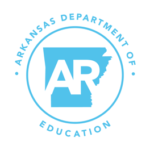May 1, 1 p.m., presented by Annabelle Blackman
You may be familiar with jigsaw puzzles, chess and even Dungeons and Dragons in your local libraries, but what about all these new board games on store shelves? What are these about? If all you know of board games is Candy Land, Monopoly and Connect 4, join us, and discover more options!
Modern tabletop board gaming grew as a hobby over the course of the pandemic as folks needed a way to unplug with those in their small circles. In this post-quarantine world, as folks venture out, people of all ages are relearning how to relate to their community. Board games can be a fun, engaging tool to fast-track relationships built around empathy and inclusion in a welcoming environment.
Takeaways from this program will include:
- Information about how board games support Social-Emotional Learning
- Confidence utilizing collection development skills to curate a relevant board game collection at your library
- Ability to adapt board game programming at a scale sustainable with your staffing
- Tools and resources for further growth as you create a tabletop culture in your library
Annabelle Blackman — Biography
Annabelle Blackman is a Librarian II at Oakland Public Library in California. Around 10 years ago, she discovered modern hobby games alongside her then 3-year-old. She facilitates many family game days at the library, attends board game conventions for professional development, as well as for funzies. She stays active in her local scene, serving as a Board Game Ranger Captain at a local indie role-playing game convention, Big Bad Con.
Professionally, Annabelle has a particular interest in games that appeal to intergenerational groups of varying literacy levels, and English language fluency. A personal gaming goal of hers is to one day learn and conquer trick-taking games!
The views expressed in webinars provided by PCI do not necessarily reflect the views or official policies of the State of Arkansas, the Arkansas Department of Education, or the Arkansas State Library.


